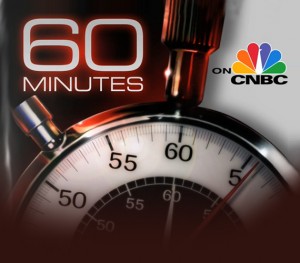
60 Minutes asks: When it comes treating depression, is there a placebo effect?
“The difference between the effect of a placebo and the effect of an antidepressant is minimal for most people,” says Irving Kirsch, associate director of the Placebo Studies Program at Harvard Medical School.
During a 2012 interview taped for 60 Minutes, Kirsch details some of his earlier studies – including a clinical trial where patients with osteoarthritis underwent knee surgery (while others just had their knees opened and sewed back up). The result? Patients who received the placebo procedure actually performed better, in terms of walking and climbing, than their peers who received surgery!
(To watch excerpts from Kirsch’s interview, please click here.)
So how do placebo pills stack up to the effectiveness of real antidepressants? Combining information from drug companies’ clinical trials with unpublished trials submitted to the FDA (which he obtained through the Freedom of Information Act), Kirsch found that,
If [patients] were mildly or moderately depressed, you don’t see any real difference at all. The only place where you get a clinically meaningful difference is at these very extreme levels of depression.
Kirsch notes that drug companies tend to disregard studies showing successful placebo results and only publish trials that highlight the benefits of actual antidepressants. And they don’t have to publish too many – the FDA sets the bar pretty low: in order to have a drug approved, pharmaceutical companies must only show that their pills are more effective than placebos in two clinical trials.
Dr. Walter Brown, a professor of clinical psychiatry at Brown University’s Medical School, supports Kirsch’s argument – going so far as to describe the theory that depression is caused by a deficiency of serotonin: “a gross oversimplification” that is probably incorrect. (Brown’s statement is powerful, as the whole premise of antidepressant use is founded on this theory.)
For more information (and to read the full 60 Minutes transcript) click here.
And if you’re just interested in the placebo effect in general, check out this article posted by the Harvard Medical School: “Placebo Goes Beyond Consciousness.” (Study authors conclude that: “It’s not what patients think will happen [that influences outcomes], it’s what the non-conscious mind anticipates despite any conscious thoughts” – very interesting!)
References:
Bonin, R. (Producer). “Treating Depression: Is there a placebo effect?” 60 Minutes Online. 19 February 2012.
Harvard Medical School. “Placebo Goes Beyond Consciousness.” 11 September 2012.


Love that the media (60 minutes) is going public with this. So much about the placebo effect gets overshadowed by main stream pharmacology. Thanks for keeping us current Jessica!
I just read your article on Antidepressants versus Placebos and want to thank you for it.